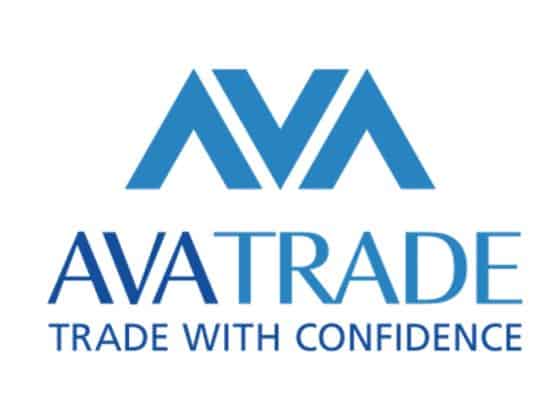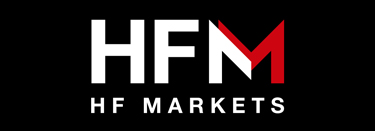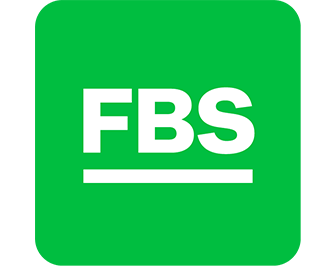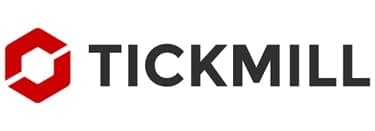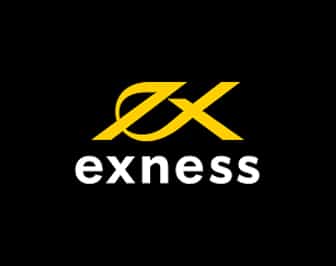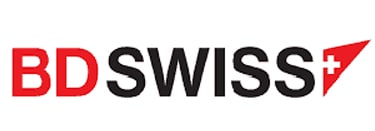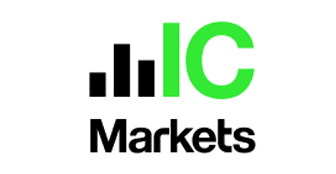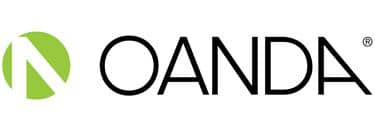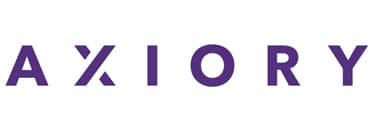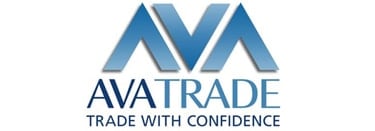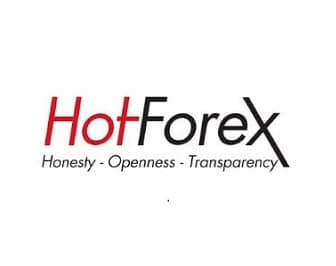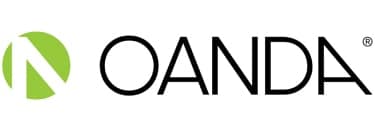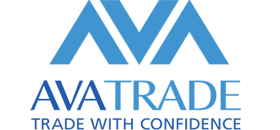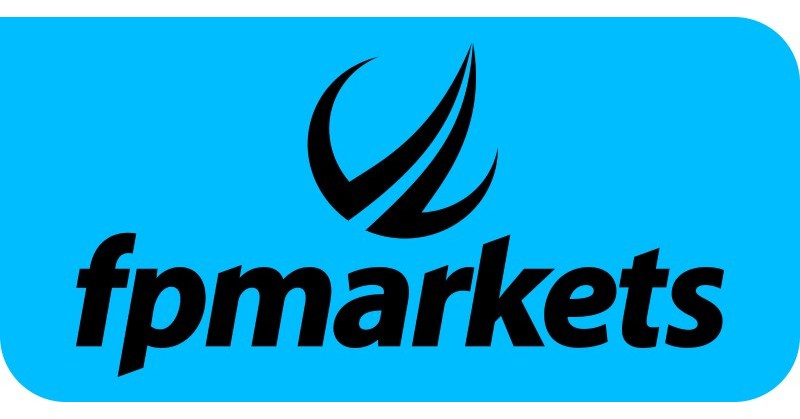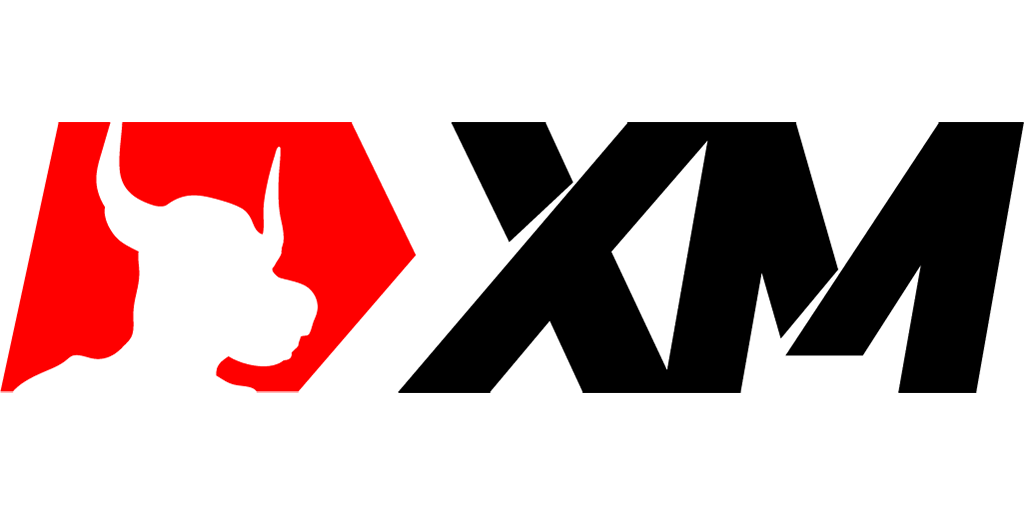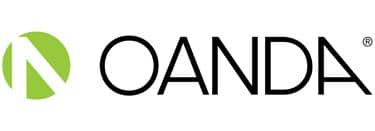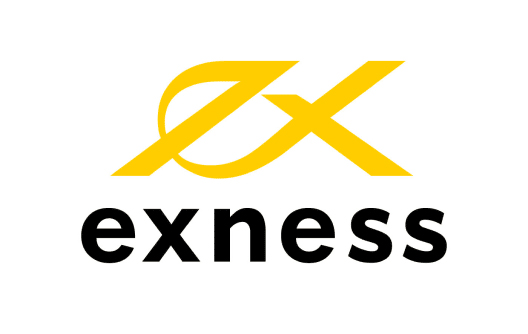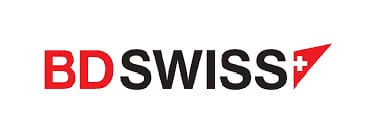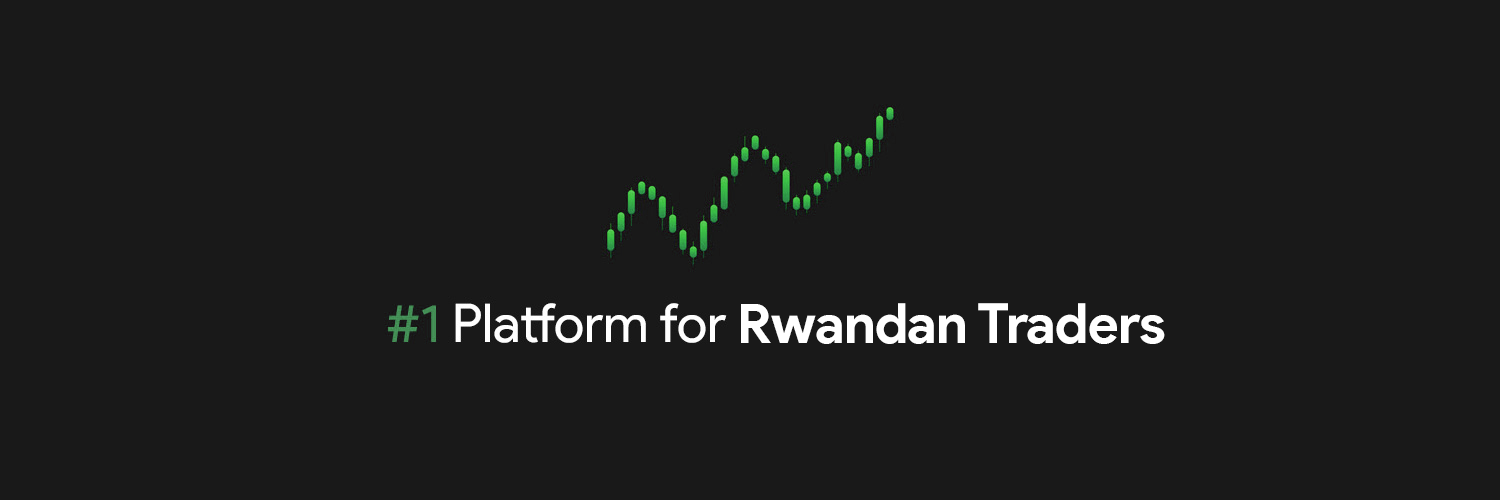
How to Trade Forex in Rwanda
How to Trade Forex in Rwanda revealed. We tested and verified how to trade forex for Rwandan traders.
This is a complete guide on how to trade forex in Rwanda.
In this in-depth guide you’ll learn:
- What is Forex?
- How does Forex Trading work?
- Our recommended forex brokers for beginner traders?
- How to compare forex trading brokers against each other?
- How to make money from forex trading in Rwanda?
- Is Forex Trading Legal in Rwanda?
- Which brokers offer an App on Android and IOS?
- How to trade forex online in 2022?
- Which forex brokers offer a low minimum deposit of $5 (5125 RWF)?
- Which brokers offer a signup bonus for first-time traders?
And lots more…
So if you’re ready to go “all in” with forex trading for Rwandans…
Let’s dive right in…
10 Best Forex Brokers in Rwanda for 2024
Rank
Broker
Review
Regulators
Min Deposit
Official Site
- Louis Schoeman
What is Forex Trading?
Forex trading encompasses the process of purchasing and selling currencies within the worldwide foreign exchange market. This market serves as a platform where individuals can engage in the exchange of one currency for another, based on predetermined exchange rates.
Millions of participants in the Forex Market simultaneously buy one currency while they sell another. Some retail and institutional traders exchange currency for business, leisure, or to earn a profit.
The Basics of the Forex Market for Rwandan

The forex market, due to its global reach in commerce, business, and finance, stands as the largest and most liquid asset market worldwide. Currency pairs are formed by combining two currencies, with each currency identified by a three-letter code.
The first two characters in the code represent the nation, while the third letter represents the currency. For instance, the code RWF represents the Rwandan Franc. Forex prices, known as rates, express the value of one currency in terms of another.
For instance, the exchange rate between the US dollar and the Rwandan Franc can be quoted as USD/RWF= 415.08.
In this example, USD is the base currency on the left of the slash, and RWF is the quote currency on the right.
When using MetaTrader 4 or MetaTrader 5, Rwandans may notice that currency pairs are expressed differently, often without the slash, such as USDRWF instead of USD/RWF. However, this difference in expression does not affect the buying or selling of currencies.
In the USD/RWF exchange, Rwandans would sell Francs to purchase US Dollars at the rate of 415.08. This means that 1 unit of the base currency (USD) is equivalent to 415.08 Franc. Therefore, to acquire 1 USD, you would need to pay 415.08 Franc.
When selling currency, the forex rate indicates the number of units of the quoted currency received in exchange for a unit of the base currency.
Decisions to buy or sell a currency depend on technical analysis and indicators that suggest whether a currency is likely to appreciate or depreciate against another.
If a trader anticipates the value of a particular base currency to increase, they would establish a buy or long position.
Conversely, if a trader expects a currency to depreciate, they would sell or take a short position to profit from the currency’s decline.
When can I trade?
The foreign exchange market stands out from other financial markets worldwide due to its unique characteristic of being accessible for trading 24 hours a day, five days a week.
The timing of forex market sessions varies based on different time zones, resulting in opening, closing, and overlapping sessions. The following tables provide an overview of some of these time zones:
Greenwich Mean Time (GMT)
| 📍 Region | 🏙 City | ⏰ Market Open | 🕓 Market Close |
| ➡️ Europe | London | 8 am | 5 pm |
| ➡️ Europe | Frankfurt | 7 am | 4 pm |
| ➡️ United States | New York | 1 pm | 10 pm |
| ➡️ United States | Chicago | 2 pm | 11 pm |
| ➡️ Asia | Tokyo | Midnight | 9 am |
| ➡️ Asia | Hong Kong | 1 am | 10 am |
| ➡️ Pacific | Sydney | 10 pm | 7 am |
| ➡️ Pacific | Wellington | 10 pm | 6 am |
Eastern Standard Time (EST)
| 📍 Region | 🏙 City | ⏰ Market Open | 🕓 Market Close |
| ➡️ Europe | London | 3 am | Noon |
| ➡️ Europe | Frankfurt | 2 am | 11 am |
| ➡️ United States | New York | 8 am | 5 pm |
| ➡️ United States | Chicago | 9 am | 6 pm |
| ➡️ Asia | Tokyo | 7 pm | 4 am |
| ➡️ Asia | Hong Kong | 8 pm | 5 am |
| ➡️ Pacific | Sydney | 5 pm | 2 am |
| ➡️ Pacific | Wellington | 5 pm | 1 am |
An Introduction to Forex Brokers for Rwandan

Forex trading, also known as foreign exchange trading, has gained immense popularity in recent years as a lucrative investment opportunity. It allows individuals to trade currencies and potentially profit from fluctuations in exchange rates.
Here is an introduction to forex brokers for Rwandans:
Regulation:
It is essential to choose a forex broker that is regulated by a respected financial authority. Regulation ensures that the broker operates under specific guidelines and complies with industry standards, providing a level of protection for traders.
Account Types:
Forex brokers offer a variety of trading accounts with different features and conditions. When choosing a forex broker, traders in Rwanda should consider various factors, including minimum deposit requirements, leverage ratios, spreads, and additional features.
Trading Platforms:
Forex brokers provide trading platforms that serve as the main gateway for traders to enter the forex market. These platforms play a vital role in ensuring seamless and effective trading. When choosing a forex broker, it is crucial to carefully evaluate the trading platform they offer.
Currency Pairs:
Ensuring that the broker offers major currency pairs such as EUR/USD, USD/JPY, and GBP/USD is vital. These currency pairs have high liquidity and are extensively traded, making them appropriate for both beginner and experienced traders.
Customer Support:
A reputable forex broker should have responsive customer support to assist traders with inquiries or issues. Look for brokers that offer multiple communication channels, such as live chat, email, and phone support.
Educational Resources:
Consider brokers that provide educational resources and materials to enhance traders’ knowledge and skills. These resources may include tutorials, webinars, trading guides, and market analysis, benefiting both beginners and experienced traders.
Payment Methods:
Check the available payment methods for deposits and withdrawals. Ensure that the broker supports convenient and secure payment options accessible to traders in Rwanda.
Demo Accounts:
A forex broker that offers demo accounts allows traders to practice trading with virtual funds. This feature is valuable for beginners to familiarize themselves with the trading platform and test trading strategies without risking real money.
Basic Forex Terminology for Rwandans

For individuals in Rwanda who are new to forex trading, it is of utmost importance to understand the fundamental terminology frequently used in the forex market. Here are some key terms that you should familiarize yourself with:
Currency Pair:
In the forex market, a currency pair denotes the pairing of two currencies being traded. For example, EUR/USD represents the euro against the U.S. dollar in the forex market. The first currency mentioned, which is the euro, is considered the base currency, while the second currency, the U.S. dollar, is known as the quote currency. The exchange rate reflects the quantity of quote currency needed to acquire a single unit of the base currency. Comprehending currency pairs is of utmost importance in forex trading.
Bid Price:
The bid price is the price at which the market is willing to buy a specific currency pair. Traders can sell at this price.
Ask Price:
The asking price is the price at which the market is willing to sell a specific currency pair. Traders can buy at this price.
Spread:
The spread refers to the difference between the bid and asks price of a currency pair. It signifies the cost of trading and is often measured in pips.
Pips:
Pips are the smallest unit of measurement in the forex market. They represent the fourth decimal place in most currency pairs. For example, if the EUR/USD moves from 1.2500 to 1.2501, it has increased by one pip.
Leverage:
Leverage enables traders to control larger positions in the market with a smaller capital investment. It is expressed as a ratio, such as 1:100, and allows traders to potentially magnify profits as well as losses.
Margin:
Margin refers to the amount of funds required to open and maintain a leveraged trading position. It serves as collateral and is a portion of the total trade size that traders must provide.
Stop-Loss Order:
A stop-loss order is a risk management tool used to limit potential losses. It is an order placed to automatically close a trade at a predetermined price level, aiming to minimize further losses.
Take-Profit Order:
A take-profit order is an order placed to automatically close a trade at a specific price level, securing profits.
Lot:
A lot represents the standardized trading size in forex. The standard lot size is 100,000 units of the base currency. Smaller lot sizes include mini lots (10,000 units) and micro lots (1,000 units).
Long Position:
Taking a long position means buying a currency pair with the expectation of its value increasing. Traders aim to sell the pair at a higher price to make a profit.
Short Position:
Taking a short position means selling a currency pair with the expectation of its value decreasing. Traders aim to buy back the pair at a lower price to make a profit.
Margin Call:
A margin call occurs when a trader’s account lacks sufficient funds to support open positions. The broker may request additional funds to cover potential losses.
Fundamental Analysis:
Fundamental analysis involves assessing economic, political, and social factors that can influence currency values. It includes analyzing economic indicators, central bank policies, and geopolitical events.
Technical Analysis:
Technical analysis involves studying price charts, patterns, and indicators to make trading decisions. Traders analyze historical price data to identify trends and predict future price movements.
By familiarizing themselves with these terms, individuals in Rwanda can develop a solid foundation for their forex trading journey.
How to trade Forex in Rwanda

To trade forex in Rwanda, follow these steps:
Educate Yourself:
To develop a strong foundation in forex trading, it is important to acquaint yourself with various aspects such as market dynamics, trading strategies, risk management, and analysis techniques. Always bear in mind that continuous learning is the cornerstone of success in forex trading.
Choose a Reliable Forex Broker:
Select a reputable forex broker that offers services to traders in Rwanda. Ensure the broker is regulated by a recognized financial authority and provides a user-friendly trading platform with essential features, such as real-time market data, charting tools, and order execution capabilities.
Open a Trading Account:
Complete the account opening process with your chosen forex broker. Provide the necessary identification documents and fund your trading account with the required minimum deposit. Choose an account type that suits your trading preferences and risk tolerance.
Develop a Trading Plan:
Establish a clear trading plan that outlines your goals, risk tolerance, preferred trading style, and strategies. Define your entry and exit criteria and set realistic profit targets. A well-defined trading plan will help you stay disciplined and avoid emotional decision-making.
Practice with a Demo Account:
Many forex brokers offer demo accounts with virtual funds. Utilize this feature to practice trading without risking real money. Familiarize yourself with the trading platform, test different strategies, and gain confidence in your trading abilities.
Learn and Apply Analysis Techniques:
Learn about fundamental and technical analysis to analyze currency pairs and make informed trading decisions. Fundamental analysis involves evaluating economic indicators, news events, and geopolitical factors. Technical analysis focuses on studying price charts, patterns, and indicators to identify potential trading opportunities.
Risk Management:
Implement sound risk management practices to protect your capital. Set appropriate stop-loss orders to limit potential losses on each trade. Determine your position sizing based on your risk tolerance and account balance. Avoid risking too much capital on a single trade.
Start Trading:
Once you feel confident in your trading abilities, you can start placing trades. Monitor the forex market, identify trading opportunities based on your analysis, and execute trades according to your trading plan. Be disciplined and avoid impulsive trading decisions driven by emotions.
Continuous Learning:
Forex trading is a dynamic field, and continuous learning is crucial for long-term success. Stay updated with market news, economic events, and changes in trading conditions. Expand your knowledge through books, online resources, and interacting with other traders.
Evaluate and Adjust:
It is crucial to consistently evaluate your trading performance and carefully review your trades. Analyze both your successes and failures, pinpoint areas that require improvement, and make the necessary adjustments to your trading strategies. Trading is an ongoing learning journey, and it is vital to adapt to changing market conditions. Stay proactive in honing your skills and stay open to refining your approach as you navigate the dynamic landscape of trading.
By following these steps and maintaining a disciplined approach, you can begin your forex trading journey in Rwanda. Remember to always trade responsibly and manage your risks effectively.
How to Choose the Right Forex Broker in Rwanda

When selecting the right forex broker in Rwanda, consider the following factors:
Regulation and Security:
Ensure the forex broker is regulated by a reputable financial authority. Regulation helps protect your funds and ensures fair trading practices. Look for brokers licensed by respected regulatory bodies such as the Financial Conduct Authority (FCA), Australian Securities and Investments Commission (ASIC), or Cyprus Securities and Exchange Commission (CySEC).
Trading Platforms:
Evaluate the trading platforms offered by the broker. Look for user-friendly platforms that provide essential features such as real-time market data, advanced charting tools, order execution capabilities, and risk management tools. Popular platforms include MetaTrader 4, MetaTrader 5, and cTrader.
Range of Instruments:
Check the variety of financial instruments available for trading. Besides forex pairs, consider whether the broker offers other instruments such as commodities, indices, cryptocurrencies, or stocks. A diverse range of instruments allows you to explore different markets and diversify your trading portfolio.
Trading Costs:
Review the broker’s fee structure, including spreads, commissions, and overnight financing charges. Lower trading costs can contribute to higher profitability, especially for frequent traders. However, be cautious of brokers offering extremely low spreads as they may compensate through other hidden fees.
Account Types:
Consider the different account types offered by the broker. Look for options that align with your trading needs, such as standard accounts, mini-accounts, or Islamic accounts. Additionally, check the minimum deposit requirements and account funding methods to ensure they are convenient for you.
Customer Support:
Assess the quality of customer support provided by the broker. Prompt and efficient customer service is crucial when you encounter issues or have questions regarding your trading account. Look for brokers that offer various support channels, including live chat, phone, and email support.
Educational Resources:
Consider the educational resources and tools provided by the broker. Look for educational materials, webinars, tutorials, and market analysis reports that can enhance your trading knowledge and skills. A broker that invests in educational resources shows a commitment to client success.
Deposit and Withdrawal Options:
Check the available deposit and withdrawal methods offered by the broker. Ensure they are convenient and secure for your needs. Consider factors such as transaction fees, processing times, and the availability of local payment options in Rwanda.
Reputation and Reviews:
Research the broker’s reputation and read reviews from other traders. Look for feedback on their reliability, execution speed, customer service, and transparency. Consider both positive and negative reviews to get a balanced perspective.
Demo Account:
Opt for a broker that offers a demo account. A demo account allows you to practice trading with virtual funds and test the broker’s platform and services without risking real money. It helps you assess the broker’s performance and suitability before committing to actual funds.
The Best Forex Brokers in Rwandan
In this article, we have listed the best Forex brokers for Forex traders in Rwanda. We have further identified the forex brokers that offer additional services and solutions to Rwandan traders.
Best MetaTrader 4 / MT4 Forex Broker in Rwanda
Min Deposit
USD 100
Regulators
ASIC, FSA
Trading Desk
MetaTrader 4, MetaTrader 5, Ava Social, Ava Protect, Trading Central
Crypto
Yes
Total Pairs
55+
Islamic Account
Yes
Trading Fees
Low
Account Activation Time
24 Hours
Overall, AvaTrade is the best MT4 forex broker in Rwanda. AvaTrade offers an enormous range of markets with more than 1,250 financial instruments that can be traded over MetaTrader 4. AvaTrade has a high trust score and has won several industry awards in the past 16 years.
Best MetaTrader 5 / MT5 Forex Broker in Rwanda.
Min Deposit
100 USD/101 652 RWF
Regulators
ASIC, CySEC, FSCA, CMA
Trading Desk
MetaTrader 4, MetaTrader 5
Crypto
Yes
Total Pairs
63
Islamic Account
Yes
Trading Fees
Low
Account Activation Time
24 Hours
Overall, FP Markets is the best MT5 Forex broker in Rwanda. FP Markets provides Rwandan traders access to the powerful upgrade on the MetaTrader platforms that can be used across several devices. FP Markets also offers unlimited access to a range of financial markets that can be traded with this innovative software.
Best Forex Broker for beginners in Rwanda
Min Deposit
USD 10
Regulators
IFSC, CySec, ASIC
Trading Desk
Meta Trader 4
Crypto
Yes
Total Pairs
55
Islamic Account
No
Trading Fees
Low
Account Activation Time
24 Hours
Overall, XM is the best forex broker for beginners in Rwanda. XM offers several educational materials to beginner traders. This material ranges from live education to videos as well as webinars and tutorials.
Best Low Minimum Deposit Forex Broker in Rwanda
Min Deposit
USD 5
Regulators
CySEC, FSC, CFTC
Trading Desk
MetaTrader 4 and MetaTrader 5
Crypto
No
Total Pairs
47
Islamic Account
Yes
Trading Fees
Low
Account Activation Time
24 Hours
Overall, HF Markets is the best low-minimum deposit forex broker in Rwanda. Because of the high leverage ratio that HF Markets offers to Rwandan, traders can register a live trading account with deposits from 2,000 Rwandan Franc.
Best ECN Forex Broker in Rwanda
Min Deposit
USD 5
Regulators
FCA UK
Trading Platform
MT5, MT4, OctaTrader
Crypto
Yes
Total Pairs
28
Islamic Account
Yes
Trading Fees
Low
Account Activation Time
24 Hours
Overall, OctaFX is the best ECN forex broker in Rwanda. OctaFX guarantees that 97.5% of orders are executed without any slippage using ECN technologies. OctaFX also offers decent leverage ratios up to 1:500 and a range of trading platforms that add to excellent trade execution speeds.
Best Islamic / Swap-Free Forex Broker in Rwanda
Min Deposit
USD 0
Regulators
ASIC, BVI, CFTC, FCA, FFAJ, FSC, IIROC, MAS, NFA
Trading Desk
Metatrader 4 and Metatrader 5
Crypto
Yes
Total Pairs
45
Islamic Account
No
Trading Fees
Low
Account Activation Time
24 Hours
Overall, OANDA is the best Islamic / Swap-Free Forex broker in Rwanda. OANDA offers a dedicated Swap-Free Account to Muslim traders who follow Sharia law. This exempts Muslims from overnight fees, and it also provides them with their own trading conditions that are suited to their trading objectives and needs.
Best Forex Trading App in Rwanda
Min Deposit
USD 0
Regulators
FSCA
Trading Desk
–
Crypto
Yes
Total Pairs
33
Islamic Account
No
Trading Fees
Low
Account Activation Time
24 Hours
Overall, Trade Nation is the best forex trading app in Rwanda. The Trade Nation proprietary app is available on iOS and Android devices. With the Trade Nation app, Rwandans can track their open positions and remain updated on market movements at any given time.
Best Franc Trading Account Forex Broker in Rwanda
Min Deposit
USD 10
Regulators
CBCS, CySEC, FCA, FSA, FSC, FSCA, CMA
Trading Desk
MetaTrader 4 and MetaTrader 5
Crypto
Yes
Total Pairs
107
Islamic Account
Yes
Trading Fees
Low
Account Activation Time
24 Hours
Overall, Exness is the best Franc Trading Account Forex Broker in Rwanda. Exness offers a choice between different retail investor accounts along with offering Rwandans the option of registering a Franc-denominated account.
Best Lowest Spread Forex Broker in Rwanda
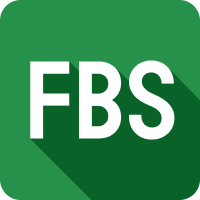
Overall Rating
- 4.7/5
Min Deposit
1 USD / 1 020 RWF
Regulators
IFSC, FSCA (South africa), ASIC, CySEC
Trading Desk
MetaTrader 4, MetaTrader 5, FBS Trader – all in one mobile trading platform.
Crypto
Yes
Total Pairs
250
Islamic Account
No
Trading Fees
Low
Welcome Bonus
$140 / 142 877 RWF
Account Activation Time
Instant
Overall, FBS is the best lowest-spread forex broker in Rwanda. FBS is one of few brokers that offer Cent and Micro accounts along with a choice between four other more advanced account types. FBS offers spreads from 0.3 pips on the Cent Account and Rwandans can expect zero-pip spreads on the Zero Account.
Best Nasdaq 100 Forex Broker in Rwanda
Min Deposit
USD 100
Regulators
CySEC, FCA, FSA, FSCA, Labuan FSA
Trading Desk
Meta Trader 4
Crypto
Yes
Total Pairs
62
Islamic Account
Yes
Trading Fees
Low
Account Activation Time
24 Hours
Overall, Tickmill is the best Nasdaq 100 Forex Broker in Rwanda. Tickmill offers Rwandan traders access to Nasdaq 100 through three retail investor accounts with competitive trading conditions.
Tickmill also offers Rwandan access to MetaTrader 4 and 5 which provides Rwandans with the tools they need to participate in a competitive CFD trading environment on Indices.
Best Volatility 75 / VIX 75 Forex Broker in Rwanda
Min Deposit
200 USD / 21 7071 RWF
Regulators
ASIC, BaFin, CMA, CySEC, DFSA, FCA, SCB
Trading Desk
MetaTrader 4, MetaTrader 5, cTrader and TradeView
Crypto
Yes (Not available in Africa)
Total Pairs
60+
Islamic Account
No
Trading Fees
Low
Account Activation Time
24 Hours
Overall, Pepperstone is the best Volatility 75 / VIX 75 forex broker in Rwanda. Pepperstone is an award-winning broker that is one of few brokers who offer access to the Volatility 75 Index as a tradable instrument. With Pepperstone Rwandans can expect the most competitive trading conditions along with powerful trading platforms.
Best NDD Forex Broker in Rwanda
Min Deposit
$100
Regulators
CySec, FSC, FSA, BaFin, NFA
Trading Desk
MetaTrader 4 , MetaTrader 5
Crypto
Yes
Total Pairs
50 Forex Pairs and 20 Crypto Pairs
Islamic Account
Yes
Trading Fees
Low
Account Activation Time
24 Hours
Overall, BDSwiss is the best NDD Forex Broker in Rwanda. BDSwiss operates as a No-Dealing Desk broker that routes all orders through reputable liquidity providers. BDSwiss is well-regulated and is one of the few brokers with an active presence across social media.
Best STP Forex Broker in Rwanda
Min Deposit
10 USD/122 BWP
Regulators
IFSC, MFSC and FSC
Trading Desk
MetaTrader 4, MetraTrader 5, CopyTrade and cTrader
Crypto
No
Total Pairs
62
Islamic Account
Yes
Trading Fees
Low
Account Activation Time
24 Hours
Overall Axiory is the best STP Forex Broker in Rwanda. Axiory executes all orders under 200 milliseconds because of the connection that the broker has to Equinix datacentres. Axiory offers a range of markets that can be traded alongside dynamic trading accounts that can be used.
Best Sign-up Bonus Forex Broker in Rwanda
Min Deposit
USD 1
Regulators
CySEC, FSC
Trading Desk
Metatrader 4
Crypto
Yes
Total Pairs
4
Islamic Account
No
Trading Fees
Low
Account Activation Time
24 Hours
Overall, InstaForex is the best Sign-up Bonus forex broker in Rwanda. InstaForex is a trusted and well-regulated broker that offers a Sign-Up No-Deposit Bonus of $1,000 to new Rwandan traders who register a trading account.
FAQ
How much can I start with forex in Rwanda?
You can start forex trading with a low capital of 1,000 Rwandan Franc. Many modern forex brokers offer low minimum deposit requirements, allowing you to enter the market even with limited funds. Additionally, these brokers often provide higher leverage levels, which can help you meet margin requirements and trade larger positions despite having a low capital.
Which app is best for forex trading in Rwanda?
The Trade Nation app is highly regarded by users in Rwanda for forex trading, thanks to positive user reviews, overall usability, and a comprehensive range of features. It is considered one of the best forex trading apps available.
How can I fund my Forex account in Rwanda?
When trading forex, you can utilize various payment methods supported by your broker. These commonly include credit cards, debit cards, bank transfers, AstroPay, Neteller, Skrill, and other local payment options available in your region.
Do Forex traders pay tax in Rwanda?
In Rwanda, profits earned from forex trading are generally considered capital gains and are subject to taxation. As of my knowledge cutoff in September 2021, the tax rate for capital gains in Rwanda is 10% of the gross profit.
Table of Contents






